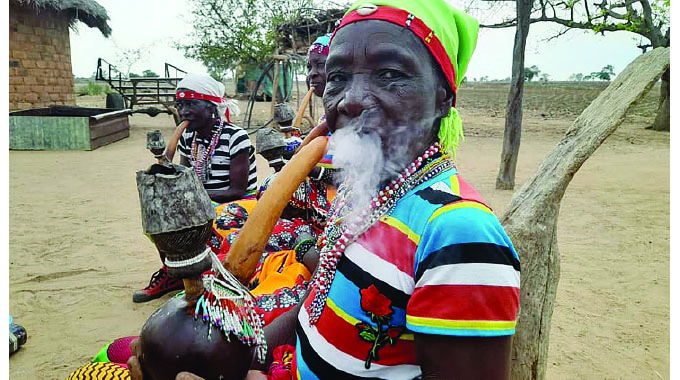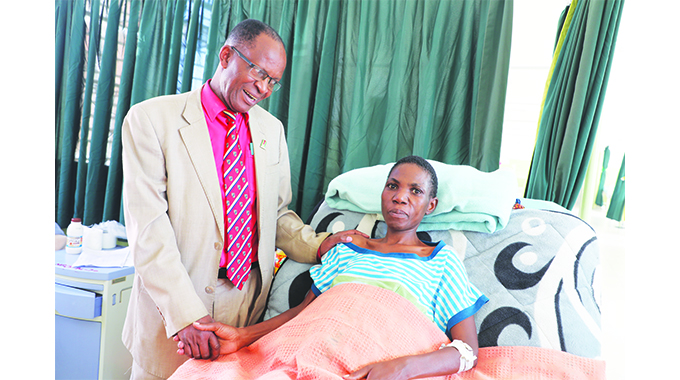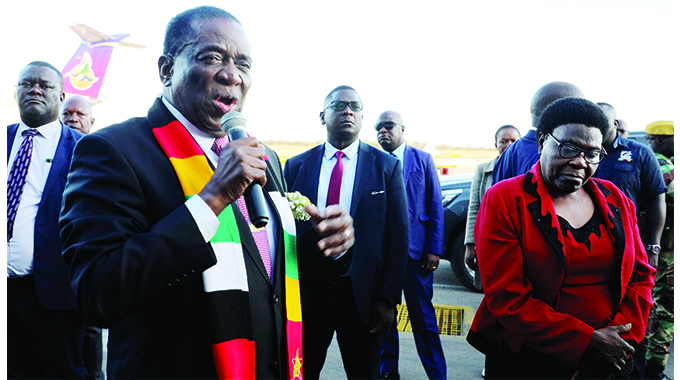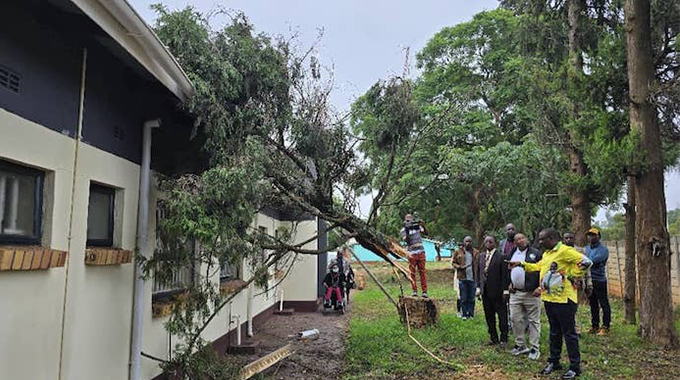1 700 years of cultural practices still going strong

Nqobile Bhebhe in Binga
THE BaTonga community in Binga has been resilient in preserving its cultural practices since arriving in Zimbabwe from Central Africa over 1 700 years ago.
Binga District in Matabeleland North Province has over 18 traditional chiefs who have rallied their communities to stick to tradition passed from one hand to the other for generations.
The Tonga remain glued to their culture which they depict through music, dance, dressing, art and practices such as traditional ceremonies, their smoking pipe, piercing the nose, and others.
And what a benefiting historical occasion it will be today when the community hosts the launch of the National Culture Month at Kariyangwe Secondary School.
President Mnangagwa will headline the occasion held under the theme: “Promoting Cultural Diversity, Unity and Peace.”
Yesterday evening, a glimpse of what is in store for today was on display.
Several groups of elderly people were seen perfecting their dance routines which have been passed from one generation to the other.
For instance, Ngoma Buntibe, a type of music act characterised by drumming, blowing horns and free dancing has become popular even at State functions where traditional groups entertain crowds with the instrumental music.
It is said that the name Ngoma Buntibe is derived from the type of big drum, whose design is such that its foot is different from ordinary drums that can balance on the ground and is played with sticks with two or more people balancing it for the one beating it.
Knobkerries, spears, shields and sticks are also part of the dance as those carrying them imitate warriors in the battlefield.
Elderly women will be wearing traditional Tonga regalia with beads around their necks and waists.
Legend has it that culturally, it is a taboo to have sex a night before a ceremony where Ngoma Buntibe is to be played.
As part of tradition, it is rare for anyone visiting any part of Binga not to come across old women who pass time smoking pot-like pipes called nchelwa.
These have been controversial as some school of thought claims they will be smoking dagga/mbanje, but the communities there insist it’s just a tobacco concoction.
As the news crew traversed through Kariyangwe, Muchesu, and Pashu, a constant striking cultural practice observed was the unique housing structures.
The Ngazi — wooden huts built on an elevated platform — which can be mistaken for granaries dominating the rural architecture.
Ngazi is the Binga version of a double-storey building.
They are built in such a manner that they are about two metres off the ground using logs, with a makeshift ladder also coming as part of the structure.
Locals said the construction was one that was also passed through generations, noting that this was one reason almost every homestead in the district has such a structure.
Another vital cultural aspect that the community is preserving is their language.
A Chronicle news crew witnessed this yesterday.
The crew struggled to secure interviews with locals after introducing themselves in IsiNdebele.
Some merely laughed at the crew and responded in Tonga, a sign that they understood what the news crew had said but wanted it to converse in Tonga.
“When you are in Bulawayo people from Binga try to communicate in IsiNdebele, the same as in Harare where Shona is the dominant language. So when you are in Binga try to speak in Tonga and we will correct you,” said one person before a burst of laughter.
This showed that Binga is a district that is so proud of its culture, so much so that anyone you meet will immediately be interested in teaching you their local language.
At least seven local traditional groups and two from Zambia are some of the performing acts at this year’s National Culture Month celebrations.
Some of the local groups performing are Muchesu (Ngoma Buntibe), Ncalilayi (Chilimba), Tusole (Chilimba), Jeke Kujeke (Ngoma Buntibe) and Maaze (Ngoma Buntibe).
The celebrations will be held under the theme: “Promoting Cultural Diversity, Unity and Peace,” and activities are envisaged to involve participants and delegates from Zambia, Mozambique, Malawi, Botswana, South Africa and Namibia.
Zimbabwe has moved from hosting the celebrations in one day to Culture Week, which ran successfully for several years.
Now there is Culture Month which provides an opportunity to host events throughout the month of May.
Culture Month commemorations are an extension of the World Day of Cultural Diversity for Dialogue and Development which is celebrated on May 21 that was set aside by Unesco through the Universal Declaration on Cultural Diversity in 2001.












Comments